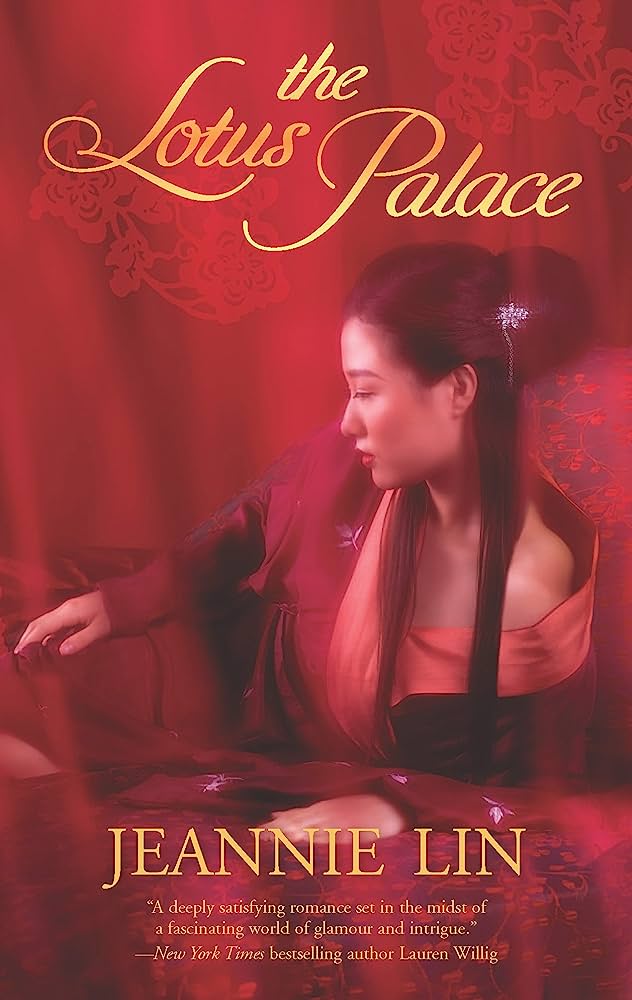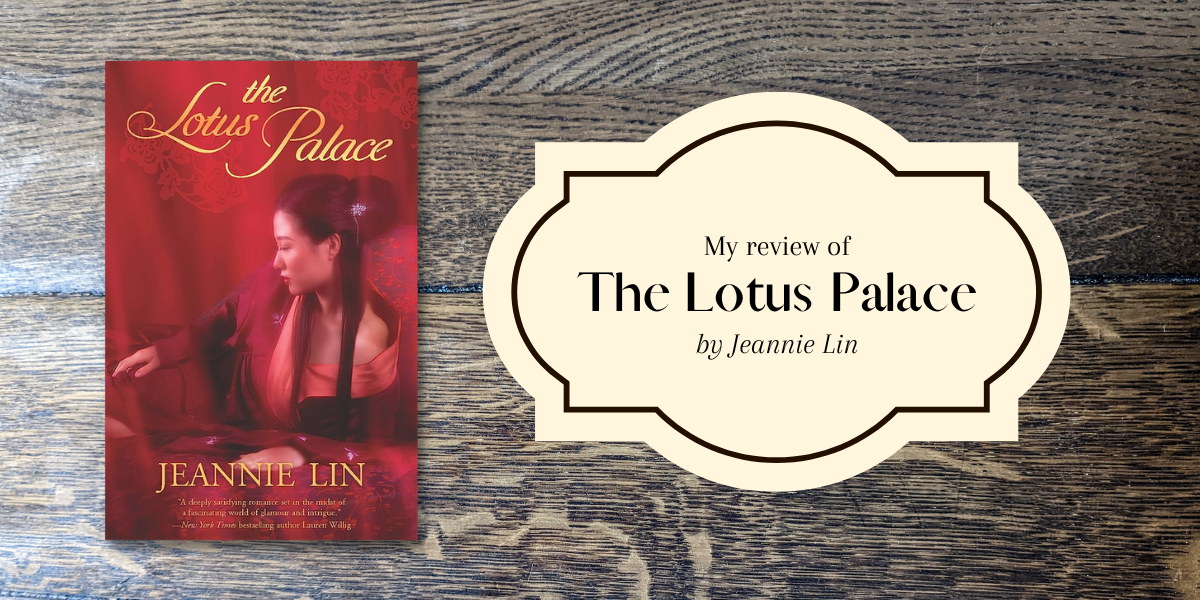The Lotus Palace is set in a historical China, which is unusual for historical romance. When you read as much historical romance as I do, you often end up reading things mostly set in Victorian or regency England. I asked around for recommendations set from other settings and Jeannie Lin’s work came up. Historical China did sound like fun – though it turned out to be set in a different time period than I thought it was. The setting made The Lotus Palace quite different from the other historical romances I have read this past year, and I quite enjoyed that.
My review of The Lotus Palace by Jeannie Lin
I really enjoyed the historical setting and the care the book takes with the power dynamics of the relationship between the protagonist and male lead. But there were aspects of the story that was less successful, such as the murder mystery element.

My original review of The Lotus Palace from 2018
Title: The Lotus Palace
Author: Jeannie Lin
First book in The Pingkang Li Mysteries
Genre: Historical romance
This started out a bit dull and I was rather hesitant to like the book – because of the setting and the inherent power structures of any relationship that could come out of that setting.
“He was left wondering whether she’d only accompanied him because he was noble-born and wealthy enough that she was obligated to defer to him.”
However the book really leaned into that and discussed the power dynamics which was really interesting. I love that was explored in a historical romance – I know many historicals does this but many doesn’t.
“You only meant to tease. You have the privilege of turning everything into a jest when I’ve never had the privilege to even refuse such an act.”
There is no insta-love in this book, the relationship is very much earned. It gets to grow and develop. I like that the book explores the complexity of privilege and power in their relationship. I like that the drama of their relationship doesn’t stop with their first love-making. The class differences are still there. Their relationship continues to evolve.
It’s really interesting to see that it is him who has to do all of the emotional work on the relationship, while she is the one thing thinking of the practicalities of their situation. She is the one not believing their relationship to can work, which I found really interesting.
And the sex scene after the wedding was just flat – unlike the rest of the book – it did ignore the power dynamics at play. Yue-ying is not a high-born lady, how will she fair in the social circle of his family? That is completely ignored, one can hope it comes up in the next book though.
I really liked the personality of Yue-ying, she is very much a realist and not a dreamer or a romantic, she sees the world that she lives in for what it is. Which is a very hard thing for her to do – it would be so much more pleasant for her to let herself believe in the romance of it all.
The book has so many female characters and interesting relationships between them – this is not one of those books where the protagonist don’t have any female friends – Yue-ying makes friends everywhere she goes. All of the woman are trapped by their circumstance, they are always the ones with the least power in their social circle, and that is doubly true for the woman of the pleasure quarter. Again the book is very self-aware on that count:
“The Pingkang li never changes. The same girls are brought here, over and over. We have different faces, but we’re all the same. We’ll grow old and new ones will replace us. A hundred years ago, there must have been another Mingyu in a house just like this one.”
The murder mystery was kind of blah if you ask me. The mystery felt like it was there as a framing narrative to tell the romantic plot line though – just there to let the characters have something to interact around.
Content warning: Yue-ying has been a sex slave in a low-class bordel – this is part of her character and affects her.
This review was originally posted: February 19, 2018, Updated June 23, 2023


Leave a Reply